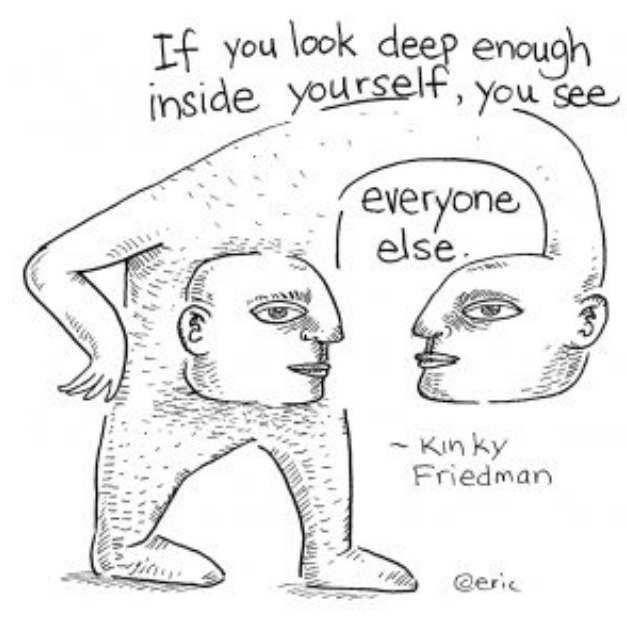Emotional Intelligence: The Power of Understanding
Many of us often say in the voice of regret that "no one understands me". Very much, if anyone could understand what is going on in our mind! Well, once thought, if we could understand what was going on in the minds of others, then how many misunderstandings would have ended? How much relationship would be stronger than breaking?
Well, do we miss the other one, can we understand our feelings properly? Suppose your mind is bad. But is our feeling so simple that it is expressed with just two or two bad words? The answer is - no. Are you feeling like you are really upset? Are you frustrated, or depressed? Or is there any repression? Can we catch the finer points of our feeling?
Photo source: asset.entrepreneur.com
The work of emotional intimacy on the delicate forms of feeling. Emotional intimacy is the ability to understand feelings of self and others, to understand the finer forms of feeling and to adapt to any environment or to achieve a particular goal.
In most cases of life, we are controlled by emotion. Again, the emotional cause of this problem arose in most of the daily life problems. Understanding the emotions can be avoided, these problems can be avoided, many goals can be achieved. That's why the importance of emotional intimacy is so much. Even in successful cases, Emotional Intelligence ('E' or 'EQ') is considered more important than 'IQ'. 
Photo courtesy: mind-setdevelopments.co.uk
Daniel Goelman has mentioned five skills in his model of emotional intelligence:
1. Self-consciousness: Self-awareness is to keep things in mind, to be aware of its feelings, weaknesses, strengths, values and goals and to decide. It also includes being aware of the effects of your innate and reactionary feelings on others (such as excessive trends or anger).
2. Self-control: It involves trying to control its harmful emotions or strings or adapt itself to changed conditions.
3. Social skills: Involve collaborators or subordinate employees with a specific goal in connection with a specific goal.
4. Empathy: When making a decision, be aware of the feelings of others.
5. Motivation: Motivate yourself to achieve something.
Photo source: sessioncam.com
Some Features of Emotional Integral
The skills of Emotional Intelligence can be stimulated by practicing any other skill. However, it may also happen that without knowing what it is, you will be able to do a high 'ei'. Please note the habits of the emotional intolerance mentioned below. Finding matches with your practice?
1. They are aware of feelings
The people with high 'eq' themselves ask themselves, 'Why do I feel like that?', 'Why did I do that?' By finding the answers to the questions, one becomes aware of his reactionary feelings and tries to stream it into a positive light.
2. They are eager to know the views of others
They know that in the eyes of themselves or their actions, others will not see it from the point of view. So they are eager to know about others' views, regardless of their positive or negative.
Photo: dharmaconsulting.com
3. They know how to break at the right time
If you are thinking of doing some thing in a hurry or doing something, it is easy to think but it is not that easy. But considering this one thought can save you from many problems, many relationships can survive, even you can become better workers than before. Emotional intelligent people can give this break at the right time.
4. They try to think from others' position
Prior to blaming anyone on some matter, people with high 'AI' tried to understand the situation from the person's position. Why did he do that? What is the response behind his reaction? By finding answers to these questions, they find a similar combination between them.
5. Emotional intelligents can accept criticism
Who wants to hear negative comments about #yourself! However, people with 'ei' understand that criticism is not just fair, but some truths are hidden in it. So they can take lessons from criticism. They also understand how others think from criticism.
6. The attitude of others is important to them
After getting acquainted with a person, they started to
analyze the person without their knowledge. As a result, they can understand how their words are affecting others. So what they are saying as well as how they say it becomes important
7. They want forgiveness for their mistakes
It is not easy to accept your mistakes and pray for forgiveness for him again. But Emotional Intelligent people can take their own mistakes through their own analysis and they know about the power of these words 'I am sorry' or 'I am sorry' and so do not hesitate to ask for forgiveness.
8. They forgive
They realize that nobody is really perfect. So, not wanting to apologize is not really a chance to heal a wound. When the guilty person is moving forward in his life, by allowing him to apologize without undue dissatisfaction, they allow themselves to continue